Lastly, halfway houses are often owned or sponsored by the state, while most sober-living houses are owned privately or by treatment facilities that want to provide continuing support for their patients. Consider asking folks at a recovery meeting or touching http://allo495.ru/files-view-539.html base with any sober friends you may have. If you recently completed a treatment program, contact the staff there for referrals to local sober living homes. Over the years, sober living houses have evolved to meet the needs of those in recovery.
A Plan of Action for Long-Term Sobriety
- So when getting back on our feet and in recovery, cooking and cleaning for ourselves is part of a healthy recovery plan.
- These are residential facilities that provide structure and support for those healing from addiction.
- You will have to agree to respect all these rules before you move in as well as understand that violating them will lead to negative consequences.
- Substance use treatment providers may offer oversight in some instances, although this is not always the case.
- The more strategies you learn to identify triggers, cope with stress, and manage your new sober life, the easier it is to prevent relapse.
Contact us today for a completely confidential conversation.We’ll help you navigate insurance and logistics so you can focus on recovery. American Addiction Centers (AAC) is committed to delivering original, truthful, accurate, unbiased, and medically current information. We strive to create content that is clear, concise, and easy to understand. As such, you will need to identify aspects of a great recovery home for the best chance at sobriety. Inpatient treatment may be required for detox or 24-hr medical/psychological monitoring. Additionally, they receive a designated support contact called a “sponsor.” Their sponsor helps to keep them accountable and be an advisor in times of difficulty.
I’m In Recovery

In her clinical work, she specializes in treating people of color experiencing anxiety, depression, and trauma through depth therapy and EMDR (eye movement desensitization and reprocessing) trauma therapy. TOWAMENCIN — Residents on Pross Road are continuing to raise questions about a sober living house on their street, while Towamencin officials have brought in an expert https://best-10.net/unwind-and-recharge-in-these-idyllic-travel-destinations/ to help deal with the case. Nestled in a quiet waterfront corner of downtown Manhattan, TriBeCa is one of New York City’s most desirable neighborhoods. Avenues NYC sober livings are strategically positioned on quiet, less-traveled side streets, ensuring a peaceful and serene home environment that’s hard to find in the hustle and bustle of downtown Manhattan.
- Most people who make their way into recovery have left a lot of pain and suffering in their wake.
- You’ll find these homes crucial if you’re in recovery, offering more than just a place to stay; they provide structure, support, and a community of peers who are also on their journey to sobriety.
- Some residents have family members or friends to help them pay for sober living.
- Others may have relapsed after treatment and therefore feel the need for increased support for abstinence.
- People new to recovery can find themselves approaching their new diet, exercise program, job, and even participation in support groups with a compulsion that echoes addiction.
Learning and Practicing Life Skills
This group tends to be somewhat consistent across most types of sober living homes—which we’ll dive deeper into momentarily. Sober Living home residents are not required to have finished or be active in formal rehabilitation. SLH only require residents https://www.gew3.org/Recovery/qumo-restoration-of-memory-map to maintain sobriety and timely payments on residential fees. Other on-site services include meetings, support groups, and life skill training. At this level, a house manager may reside in the house and will typically be a peer in long-term recovery.
More Options to Get In To Transitional Housing

Find lasting recovery from drugs and alcohol at Southern California Recovery Centers. We can provide substance abuse treatment and help you find a sober living post-treatment that works for you. Prior to admission into a sober living home, residents are expected to have completed rehabilitation, and should commit to an ongoing therapy plan or attend weekly 12-step meetings.